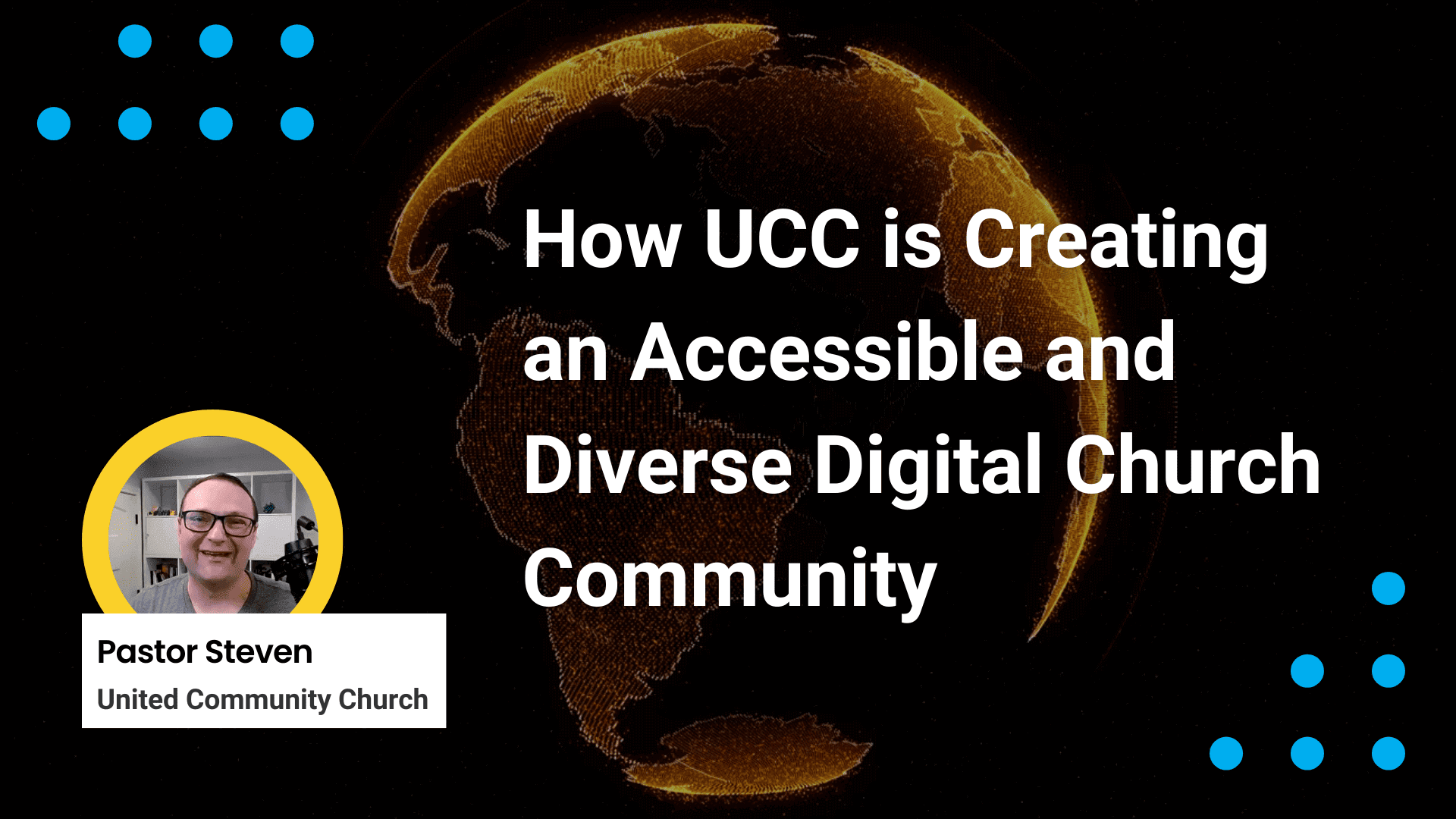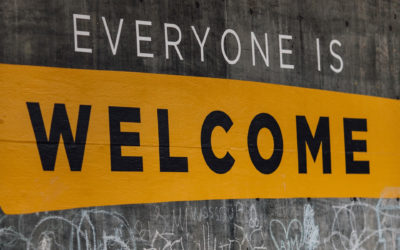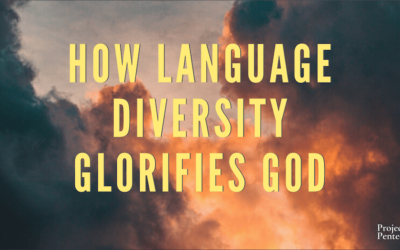God’s message is clear: God wants unity among believers that transcends barriers like language, culture, race, and ethnicity. However, that is not the reality today. Most churches in the United States for example are still predominantly monocultural.
This is the story of United Community Church (UCC), a digital church set to launch in February 2024 on a path to break that status quo. We met with Pastor Steven Zapolski to learn more about UCC and what they’re doing.
Explore the contents of this article:
1. How UCC started
2. Building a diverse community in a digital space
3. Communication as a foundation for unity
4. Churches can do more for inclusion
How UCC started
Pastor Steven was attending a conference on justice and the gospel when he felt a calling from the Holy Spirit to pastor a diverse church. From that moment on, he embarked on a 5-year journey to launch UCC, reflecting deeply on the unique purpose and meaning of the church. Pastor Steven’s understanding of what God wants is greatly influenced by John 17, where Jesus said that it’s by our unity that the world will know we belong to Him.
What happened to Jesus’ disciples at Pentecost is an apt demonstration of UCC’s dream. God led the way in bringing together people from different cultures and languages–and we follow that lead. Unity in diversity displays God’s glory. Pastor Steven highlights this:
“… language diversity is very important because there are [aspects] that God has given you, that He’s given a culture that you’re part of, elements of your identity, including language that He wants to show Himself through. ..I’m missing out on God by not being unified, right?”
In a divided and increasingly polarized world, UCC is on a mission to become an accessible, diverse, and digital community intended for anyone to experience Jesus and connect as a community.
Building a diverse community in a digital space
Pastor Steven notes that social divisions based on race and socioeconomic status create significant barriers between groups of people despite geographical proximity. There are also Christians who can’t physically go to church for one reason or another, which means they aren’t able to experience fellowship with other believers. When Christians cannot fellowship, how can non-Christians witness unity?
The digital realm provides an opportunity for individuals to come into closer proximity with each other and begin to bridge those divides.
As an online church, UCC also exists as a space for people who have never experienced being in a church community or might be hesitant. However, just as there are physical and language barriers in person, there are also digital barriers that UCC has to tackle.
Popular online platforms such as Google and Facebook direct people to advertisements based on interests, location, and other factors. Hence it is very difficult for people to be exposed to diversity and differences online.
UCC challenges this through ads and social media posts that showcase their church’s vision: people from diverse backgrounds are prominently displayed in their posts and they do not limit posts to one language. Their digital presence aims to bridge the gap in attracting diverse people through better representation. It is a witness to God’s desire for diversity.
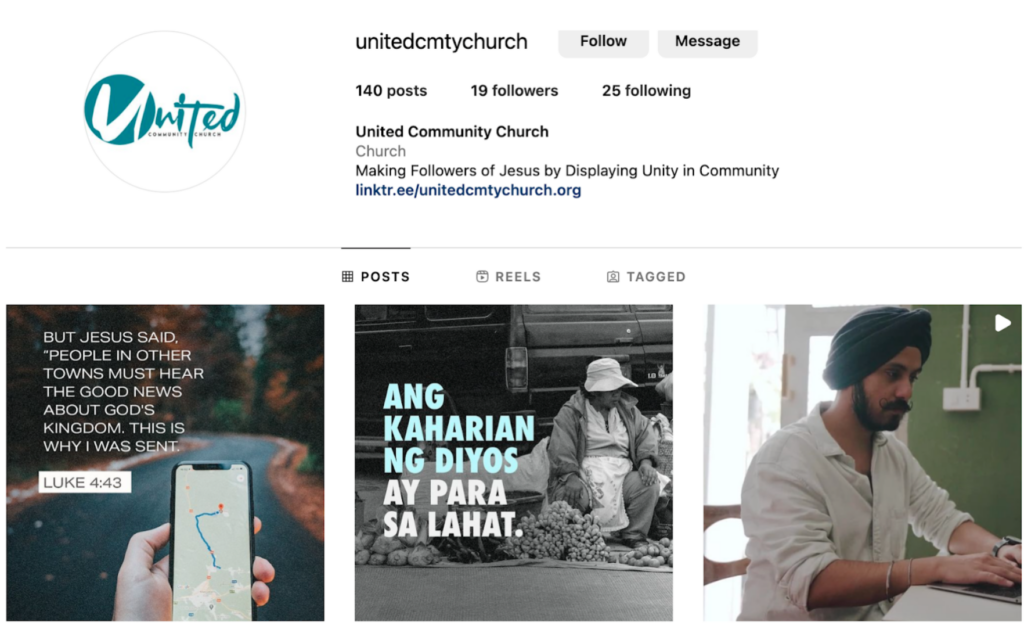
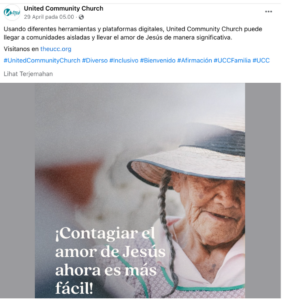
Examples of how UCC shows diverse unity in social media
Communication as a foundation for unity
Pastor Steven said,
“The ultimate expression [for unity] is advocating for one another, but the starting point is communication. When you’re advocating for somebody, you’ve already gone through the process of understanding, of empathy. You’ve already gone through the process of communication right? And so, to me, the ultimate expression is advocating for one another, but the starting point is communication.
Of course, language is often the first communication barrier to be overcome.
UCC recognizes this challenge and actively fosters an inclusive culture where the language gap does not prevent individuals from participating. They have taken several steps towards achieving this goal, starting with their board meetings and multilingual online events, made accessible with live captions and translations provided by spf.io. This tool facilitates communication across language barriers and also supports the Deaf and hard of hearing. Through live translations, members who can’t speak English can follow along and understand the sermon in their language simply by looking at their mobile devices.
But true belonging and community isn’t a one-way street. UCC wants their members to be able to do things together outside of Sunday sermons and understand each other despite speaking different languages.
So in partnership with Pastor Steven, we’ve created spf.io Convo, an AI-powered multilingual conversation tool that helps churches make belonging possible.
“With the spf.io Convo app, now we’re able to have multiple people on a call in a group setting where we’re speaking different languages, even more than two, and we’re able to actually share our experiences, faith, and cultural expressions with one another. Before spf.io Convo, it was a very hard challenge or barrier, if not impossible,” said Pastor Steven.
UCC has been testing out spf.io Convo in Tagalog, Spanish, and English, and they plan to scale up in the future by adding more languages to use. According to Pastor Steven, “It’s like moving a mountain. How do you do that? It’s by moving one rock at a time. So those are the three languages that we’re tackling first. But we have a plan to phase in more and more languages as we go along.”
Pastor Steven shared his passion of bringing people together by expressing his dream of having a Sunday service where people not only listen to the sermons but can go to a multilingual group discussion afterward.
“Having diverse groups of people in each of those discussions intentionally is like reversing the algorithm. The current algorithm separates you. We want to build an algorithm that brings you together.”
UCC challenges how the world perpetuates separation and aims to create a new way that fosters unity and brings people together.
Churches can do more for inclusion
Pastor Steven emphasized the importance of looking around and asking,
“Who’s missing in our churches?”
Resources like the US Census website can provide churches with demographic information. For example, Pastor Steven uses this site for his area. If there are significant differences between a church’s demographics and the surrounding community, starting a dialogue about how to be more inclusive may be necessary. This involves taking concrete steps towards unity, which is central to Jesus’ message.
Even in areas lacking in diversity, it is crucial to question why this is the case and to acknowledge history’s role in shaping these dynamics. Ultimately, becoming more welcoming of people from different backgrounds and cultures requires a willingness to learn and to be open to new perspectives.
In Pastor Steven’s own words:
|
This post is part of a series for Project Pentecost, a movement of people and churches striving to reflect the diversity of God’s kingdom in churches today. Join us in spreading the message of diversity and inclusion at church by sharing this story on social media and signing up to Project Pentecost.
Connect with spf.io:
Follow UCC:
Sign up for the spf.io Convo waitlist

